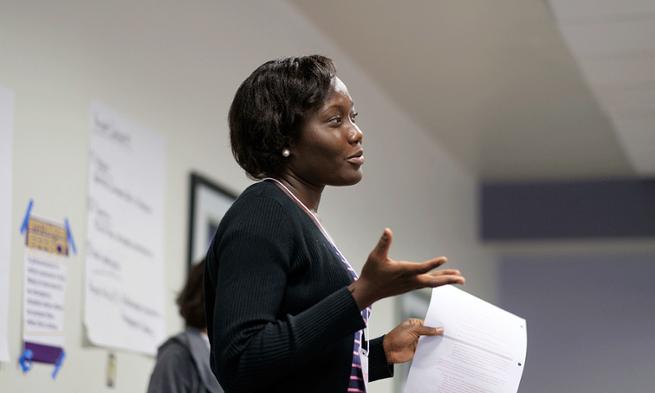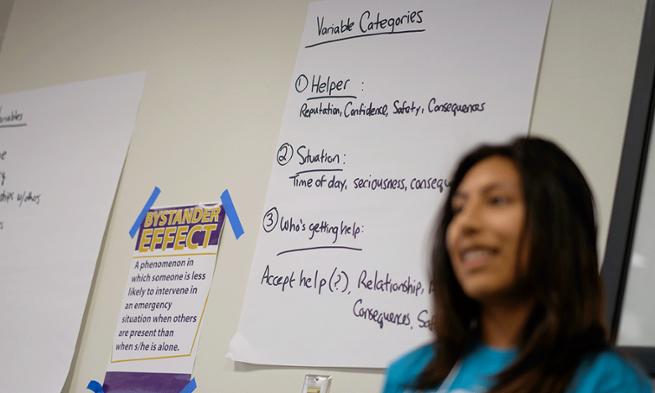Dukes Step Up
Nation and World
Tackling the bystander effect and promoting responsible action
By Max Hamilton
Download the Madison app (iOS & Android) to view this story and discover more features on your device for an immersive, interactive experience!
'Dukes Step Up focuses on empowering students to act or “step up” before a situation becomes problematic'
Dukes Step Up focuses on empowering students to act or “step up” before a situation becomes problematic—teaching the skills necessary to notice an event, recognize it as a problem, assume personal responsibility, use safe methods to intervene and implement help as needed.
During the first year of college most freshmen will be in an environment with a wider array of choices and lower degree of supervision than they have experienced before. Peer-facilitators — older JMU students trained to conduct these sessions — lead freshmen in discussions about the responsibilities they inherit living in this new environment.
“It covers the things that are happening that are not necessarily what we want to be talking about,” says Veronica Jones, the University Health Center’s assistant director for marketing, communications and outreach, “but we have to talk about it.”
Topics include sexual assault and over-consumption of alcohol in conjunction with the bystander effect, which occurs when the presence of others discourages an individual from intervening in an emergency situation.
Despite the gravity of the issues Dukes Step Up covers, the program avoids an overwhelmingly negative tone. Facilitators are careful not to alienate or castigate any of the participants. A facilitator’s job is not to make anyone feel bad for any instance in the past in which that individual may have been party to the bystander effect. Jones acknowledges that some people will learn to “step up” in increments. The fundamental function of the program, rather, is to communicate clearly to the participants that taking certain actions within one’s own power to prevent harm from coming to others is an expectation of JMU students. And rather than just thrusting that expectation upon the students, Dukes Step Up teaches them when to recognize situations in which they might need to step up and how to go about doing so.

The program takes into consideration that the idea of intervening when a sexual assault seems imminent or someone at a party has had too much to drink may be intimidating to some. But according to Jones, stepping up can be as subtle as noticing a person who might be in danger and simply asking, “Hey, can I get you a glass of water? Why don’t you come with me?”
“These discussions lead to more open-minded students and a tighter community of students,” facilitator Mary Smilack (’17) says.
Both faculty and students say Dukes Step Up is making a positive impact, and the program is growing. This fall there were 100 facilitators during 1787 Orientation, more than in any previous year. UHC has developed a new program called Dukes Step Up 2.0, which deals more exclusively with sexual assault, and Dukes Step Up will be the focal point of one of the center’s marketing campaigns this year.
